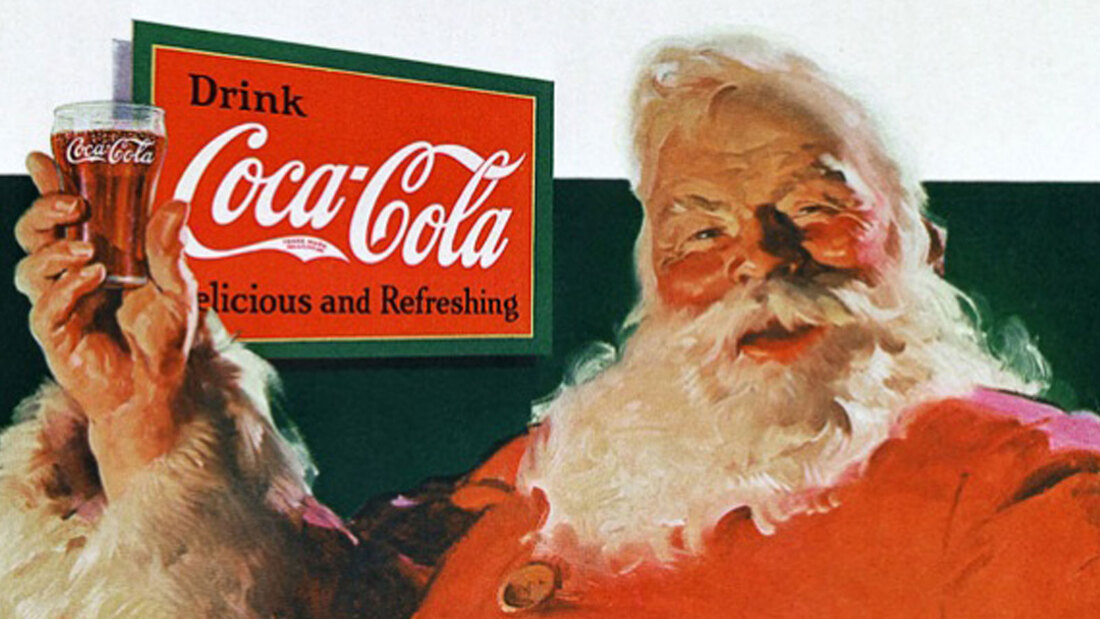"Christmas has turned into America’s number-one consumerism event almost as quickly as it became popular."--Adeline SYlvia, 7th grade
Christmas has turned into America’s number-one consumerism event almost as quickly as it became popular. Unfortunately over the years, brands like Coca Cola have turned Christmas into a holiday to help themselves. This can be seen by the 15.2 billion dollars spent every year on unwanted presents. Americans are planning to spend an average of $998 on Christmas gifts this year, and one in ten unwanted gifts will go to the landfill.
The commercialization of Christmas began in the 1840s when Christmas came to New York and Boston, and was aimed at children. Before the 1840’s, Christmas was not celebrated by most Americans. There was a Dutch character named Sinterklaas, who appeared a lot more spooky than modern Santa. Santa Claus was featured in Coca Cola for the first time in 1920, by 1931 Coca Cola hired illustrator Haddon Sundblom who made Claus more wholesome.
Black Friday is a great display of consumerism, as it tricks people into thinking that they are getting great deals. Stores like Target use the holiday season to rope people in, knowing once you are in the store you’re definitely buying more than one thing. People get put under so much stress around Christmas by deals and expectations set for how much they spend. With the Christmas shopping season starting as early as October now, sales dramatically increase with peoples gift purchasing. And it’s not just gifts, also things like decorations and party supplies.
Parents struggle during the holidays, not only trying to make an “ideal” Christmas for their kids (which can be very pricey), but also pressured to give gifts to neighbors, friends, family, and co-workers—and to even have holiday parties for their staff. There are a lot of false expectations set for how Christmas “should” be since most people don't want to disappoint their kids or families. “The pressure is on parents to buy gifts for their children,” McClelland-Nugent said. “The feeling of guilt is absolutely intentional. If you don’t buy it, your children won’t have that. And who would want that? You want to be a good parent,” said on Augusta Universtiy’s JagWire.
They spend loads of money on Christmas, causing 21.5% of Americans to go into debt, and often on an unwanted gift. When children have so many presents they actually stop enjoying playing with them.
Jen Gale of Sustainable-ish has compiled many facts of the role of this holiday on the planet, including that the amount of wrapping paper used to wrap Christmas presents is enough to go around the globe nine times! One billion Christmas cards end up getting discarded every year, and only one percent of the consumer goods given are in use only one month later.
It’s hard to measure the effects of long term physical and economic stress on individuals and families caused by this consumerism, but we do know that this kind of stress contributes to long term health challenges. A more immediate way to see this stress played out involves drunk driving and deaths around these national holidays. Hundreds of Americans die on the road every year during the week between Christmas and New Years. According to the National Highway Traffic Safety Administration, 37 percent of drunk driving accidents that result in fatalities occur during that week.
All of these facts are sobering and disturbing. The truth is that the true toll on families and the environment are impossible to measure. People are manipulated by companies to buy things and experiences that are completely unnecessary and don’t bring any real happiness. What we are forced into is further stress, debt, and snowball the mounting ecological disaster of climate change, landfill overload, and eventual ocean-bound plastic. This commercialism and annual holiday exploitation has to stop or we will never save the planet and our future selves.



